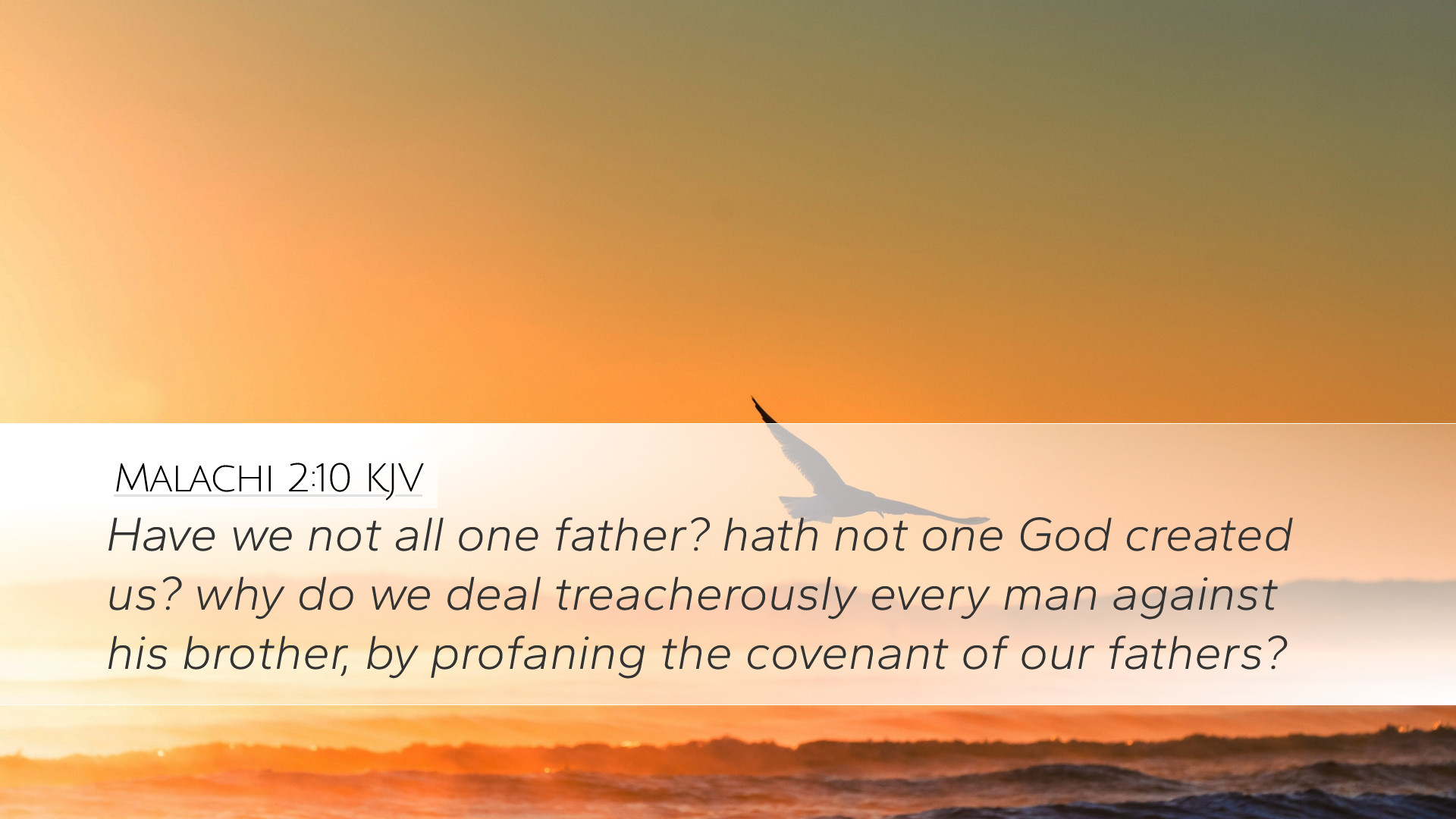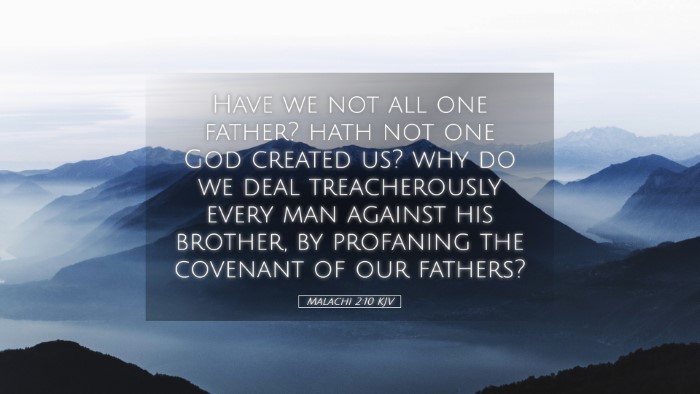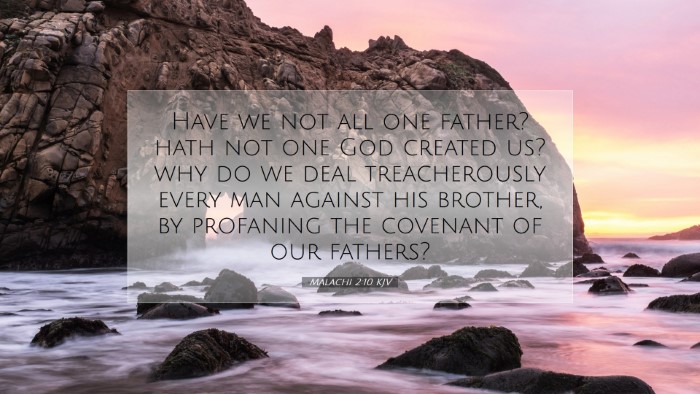Old Testament
Genesis Exodus Leviticus Numbers Deuteronomy Joshua Judges Ruth 1 Samuel 2 Samuel 1 Kings 2 Kings 1 Chronicles 2 Chronicles Ezra Nehemiah Esther Job Psalms Proverbs Ecclesiastes Song of Solomon Isaiah Jeremiah Lamentations Ezekiel Daniel Hosea Joel Amos Obadiah Jonah Micah Nahum Habakkuk Zephaniah Haggai Zechariah MalachiMalachi 2:10
Malachi 2:10 KJV
Have we not all one father? hath not one God created us? why do we deal treacherously every man against his brother, by profaning the covenant of our fathers?
Malachi 2:10 Bible Commentary
Commentary on Malachi 2:10
Text: "Have we not all one father? hath not one God created us? why do we deal treacherously every man against his brother, by profaning the covenant of our fathers?" (Malachi 2:10)
Introduction
The verse Malachi 2:10 serves as a poignant reminder of the divine fatherhood and the unity of humanity under the sovereignty of God. It questions the integrity of interpersonal relationships among the people of Israel, particularly in the context of their covenant with God.
The Meaning of Divine Fatherhood
Matthew Henry emphasizes that the notion of God as the Father of all implies a shared heritage and responsibility among humanity. As children of the same divine parent, there exists a familial bond that underscores mutual care and respect.
The Covenant Relationship
Albert Barnes points out that the covenant mentioned in this verse refers to the sacred agreements made between God and His people, which were often violated. This breach is termed "treachery," illustrating the severity of infidelity not just to one another, but to God Himself.
Human Integrity and Interpersonal Relationships
Adam Clarke remarks on how dealing treacherously with a brother underscores a moral failing that reflects poorly on one's relationship with God. The essence of God’s command is that believers should exhibit love and respect towards one another, which is foundational to community life.
Theological Implications
The phrase "hath not one God created us" prompts a deep theological reflection on creation's purpose. It serves to unify the human race as it emphasizes equality and the shared origin from one Creator God, making any form of discord or betrayal a direct affront to God's design.
This invites believers to reconsider how their actions affect not only their own spiritual state but also the collective moral fabric of their communities.
Contemporary Applications
- Church Unity: Pastors may find this verse invaluable in promoting unity within the church body, advocating for reconciliation and harmony.
- Ethical Conduct: The treachery mentioned can serve as a historical reflection on how modern Christians should strive to fulfill their commitments in relationships.
- Brotherly Love: The emphasis on loving one's brother is a challenge for students and scholars who must navigate their interpersonal relationships with care and ethical consideration.
Conclusion
Malachi 2:10 calls believers to reflect on their relationship with God as it relates to their relationships with one another. The admonition to eschew treachery is deeply rooted in the covenantal relationship established by God. Understanding this verse encourages a holistic approach to faith that honors God through loving interactions among ourselves.


